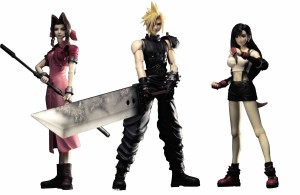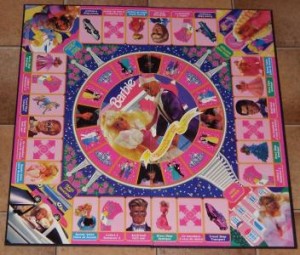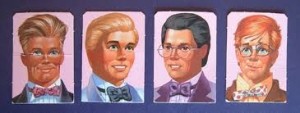My love affair with board games began when I was a small child. Every once in a blue moon, our family would gather around the dining room table and play a board game. When I say “blue moon,” I mean it. It hardly ever happened, and I think the scarcity of these occasions was part of the draw. I was also fiercely competitive, which hasn’t changed much.
Back in the late 1980s, as I was coming of age, the first Nintendo console was brand new. Hot off the assembly lines. I thought Duck Hunt was fun, but oh my God was I bad at it. I always blamed it on poor hand-eye coordination, the same excuse I gave for being so dismal at baseball, football, soccer… well, any sport really, right down to miniature golf. (Turns out I’m not terrible at curling, only middling, but that’s a whole other post, which sadly will most likely never appear on this blog due to being so wildly off-topic as to be side-splittingly hilarious.)
So where was I?
Oh yeah. Nintendo. I was bad at it. I was one of those guys who struggled to get through the first world of the original Super Mario Bros. Those damned killer flower vines always crawled up at the worst moments, and don’t even mention the bottomless chasms. No matter how narrow the holes, I sent Mario and Luigi careening straight into them every time. It’s like riding a bike and trying to avoid hitting a tree while you’re staring right at it—harder than it sounds, trust me.
As I got older, gaming platforms got more advanced, but my aforementioned hand-eye coordination didn’t. I sat back while at my friends’ houses and watched Goldeneye tournaments drag on for hours. When they asked me if I wanted a turn, I politely declined, saying that really, no, I preferred to spectate.
What a crock.
So it was board games for me, but it was hard to find anyone willing to play them. And the selection wasn’t particularly sophisticated; on the top shelf of our hallway closet was a collection of ramshackle Monopoly and Payday boxes, the edges torn and the playing pieces scattered.
It wasn’t until college that I discovered board games could be awesome. My friend Tom invited me over to a games night one evening, and I learned about Settlers of Catan. I loved that game right from the start. I’ve played it probably a hundred times since—and only won twice, which is an ego bruiser, to be sure, but it never stopped me from coming back for more punishment. Today, I get together with my board-gaming buddies about once a month, and we’re always trying out new releases from overseas. It’s a bit pretentious and snobby, yes, and that’s how I like it. And sometimes I even win!
There’s a point to all this beyond a sprawling personal history, I swear.
For as long as I dabbled with games, I also dabbled with writing, but never did the two meet. They were unrelated activities. One had nothing to do with the other. After all, games had rules, and my gestational stories did not. It was years before I discovered structure. Half of the fun of writing was finding out what happened at the end. I suppose some writers still work this way, though at least they usually impose structure after the fact.
Well, games and stories had a lot more in common than I thought. If they’re not quite siblings, then at minimum they’re first cousins. They have beginnings, middles, and ends. They have characters (actual characters sometimes, at other times just players, though the two are analogous). They have probabilities, conflict, and suspense. They have surprises and twists.
Without gaming, I’m pretty sure I would have discovered the importance of narrative structure, eventually. But it would have taken me a lot longer. I’ve now been told that my handle on plot and structure is one of my greatest strengths as a writer, so maybe all those wasted hours watching my friends play first-person shooters weren’t quite as wasted as I initially thought!
In fact, I know they weren’t wasted. For me, games were a catalyst. They were the bridge carrying me from thinking of plot as just the things that happened in a story to seeing them as intentional machinations. The main difference between books and games is that as an author the rules aren’t imposed on me anymore. Now I get to make the rules, and it’s the sweetest revenge.
Can you imagine how good I would have been at baseball if the team with the most strike-outs won the game?
I can.

 A guest post by Sam Sykes
A guest post by Sam Sykes![author-pic[1]](http://www.fictorians.com/wp-content/uploads/2013/08/author-pic1.png) Guest Writer Bio: Sam Sykes currently lives in the United States with his two hounds and, at any given time, is probably yelling at something inanimate.
Guest Writer Bio: Sam Sykes currently lives in the United States with his two hounds and, at any given time, is probably yelling at something inanimate. 


 A guest post by Myke Cole
A guest post by Myke Cole